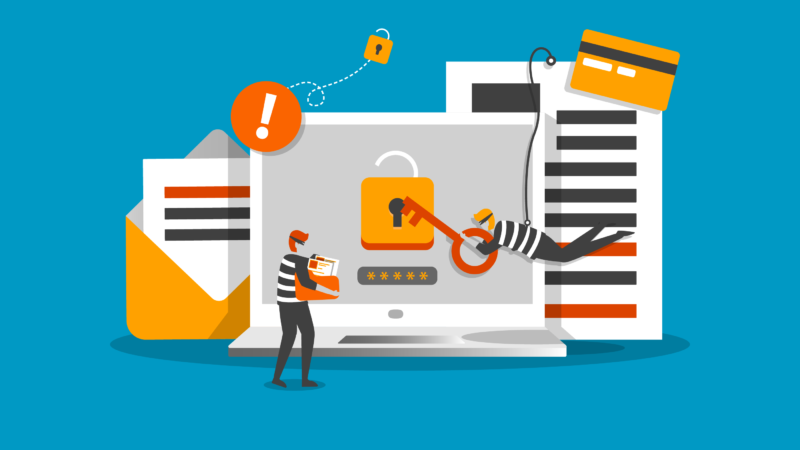Understanding Identity Theft
Identity theft happens when someone utilizes your personal information without your permission. They may use your personal information to start a credit card account, obtain a loan, or rent an apartment under your name.
They could gain access to your bank or retirement funds. You may only realize identity theft has occurred once you check your credit report, are notified when applying for credit, or are contacted by a debt collector.
Identity theft happens when someone obtains your login credentials and personal information with the intention of committing fraud. Financial identity theft is the most frequent type of identity theft. The field of identity theft protection is expanding, monitoring consumer credit records, spending patterns, and Social Security number usage.
The frightening aspect is that most of us willingly share our personal information online, making it easier for cybercriminals to steal it. This might happen to anyone due to the prevalence of technology and the internet. However, with some basic knowledge, planning, and awareness, identity theft can be avoided.
How does Identity Theft happen?
Numerous methods can be used to commit identity theft. Certain identity thieves hunt for credit card statements and bank accounts by going through trash cans.
A more advanced method is to access company databases to gather lists of client information. Identity thieves have the ability to damage a person’s credit rating and the status of other personal information once they acquire the information they are looking for.
In order to perpetrate identity fraud, identity thieves are depending more and more on computer technology to obtain personal information from victims. To obtain this information, they might look through the hard drives of abandoned or stolen computers, break into networks or computers, access public records stored on computers, infect machines with malware that collects information, visit social media sites, or send phony emails or texts.
Most Frequent Types of Identity Theft
-
Credit Fraud
When someone exploits your personal information to take out loans or open new lines of credit in your name, this is called credit fraud. Credit fraud has the potential to ruin your reputation with credit lenders. You are able place a credit freeze on your account to prevent future damage, which Identity Guard can assist you with. Identity Guard also sends you fraud notifications, which may help you avoid credit theft.
-
Child identity theft
Criminals use a child’s identity to apply for credit in their name. It is frequently not found until the victim applies for student loans or other type of credit. Signs of danger, investigate if your child receives credit card offers or phone calls regarding late payments or debt collection. You can prevent this by freezing your child’s credit.
-
Identity Fraud
Identity fraud happens when someone acquires unauthorized access to your personal information and takes your identity to conduct fraud using your financial resources. Criminals may attempt to commit online fraud using your bank account, bank account information, debit card, credit card accounts, and other financial instruments.
-
Taxpayer identity theft
Fraudsters sometimes exploit your Social Security number to make a tax return and take your tax refund or credit. You may be unable to e-file because someone else has previously filed under that Social Security number, you receive an IRS notice or letter referencing some action you were unaware of, or IRS records indicate you worked for an employer you did not work for. Filing early will help you beat fraudsters to filing in your name, and some states also offer six-digit identity protection PINs with additional security (after rigorous verification).
-
Medical identity theft
Medical identity theft happens when criminals take your protected health information (PHI) and use it to obtain care or purchase prescription drugs and medical equipment in your name. Medical identity theft is particularly risky because it might result in erroneous information being recorded in your medical records. In the worst-case situation, a scammer could use your health information to provide subpar or life-threatening care.
Identity theft is a difficult and upsetting experience that can seriously impair your creditworthiness and result in overdue bills. Always keep an eye out for any signs of fraud on your credit report, bank statements, and credit card statements.
If you have discovered that you are a victim of fraud, there are options for disputing the charges, repairing the crime, and preventing fraudsters from accessing your information. The government offers numerous options to assist you in restoring your credit.


Recent Comments